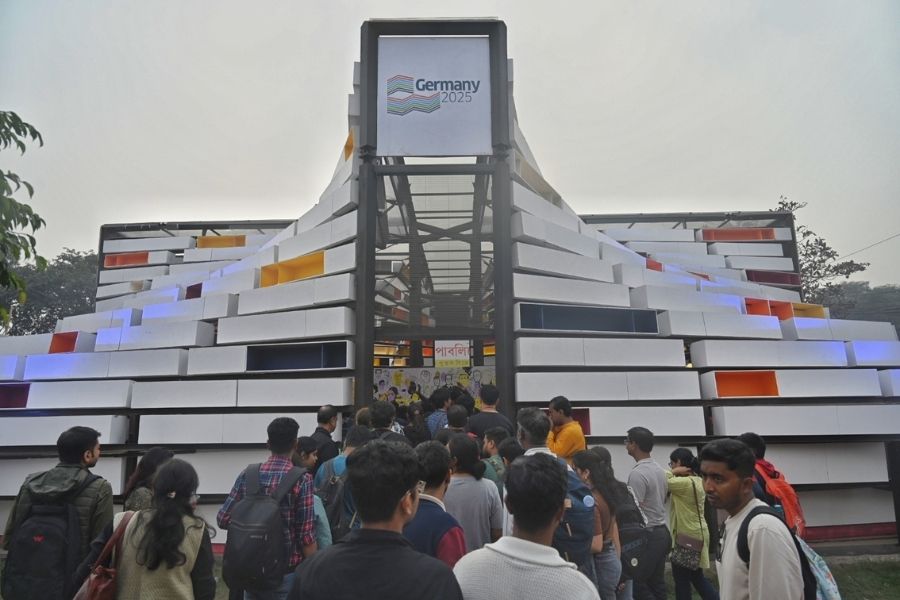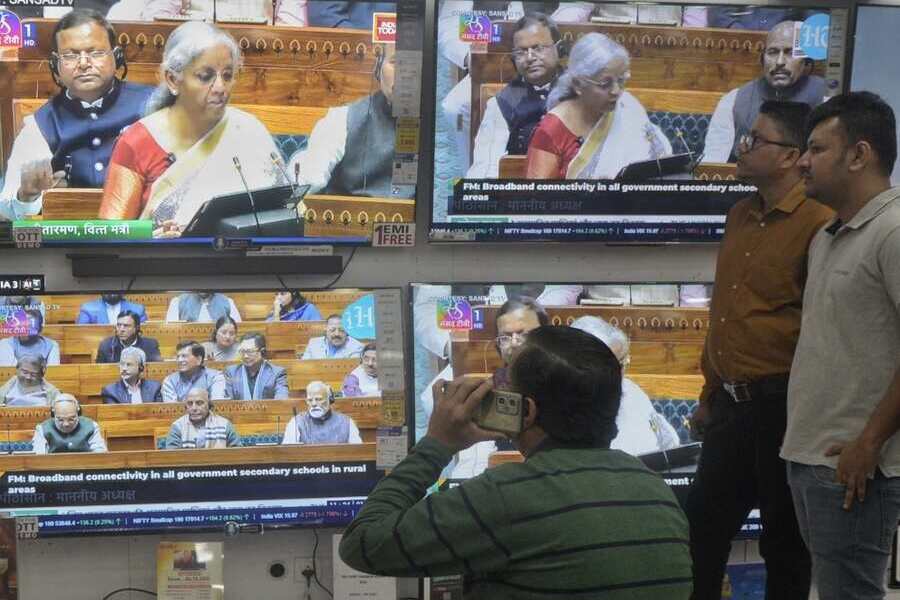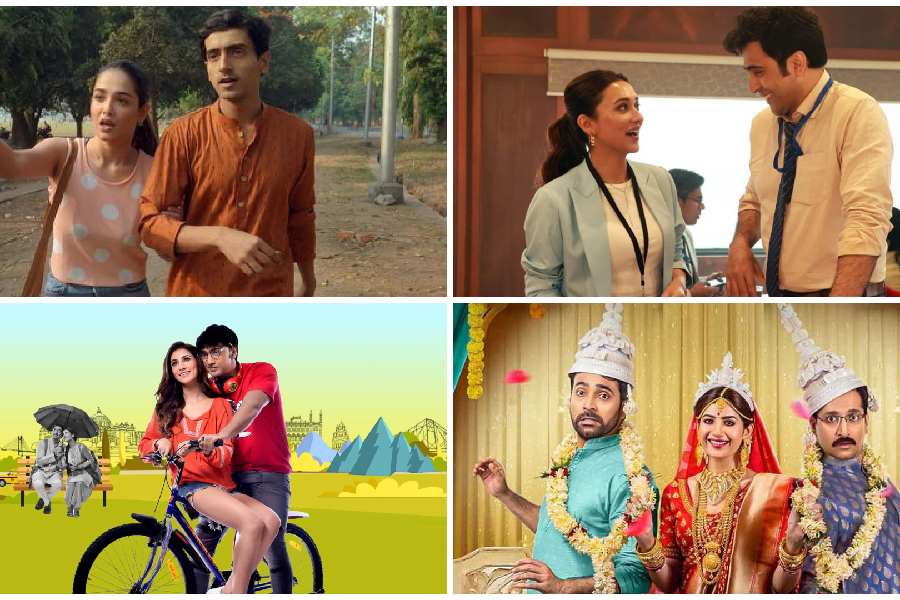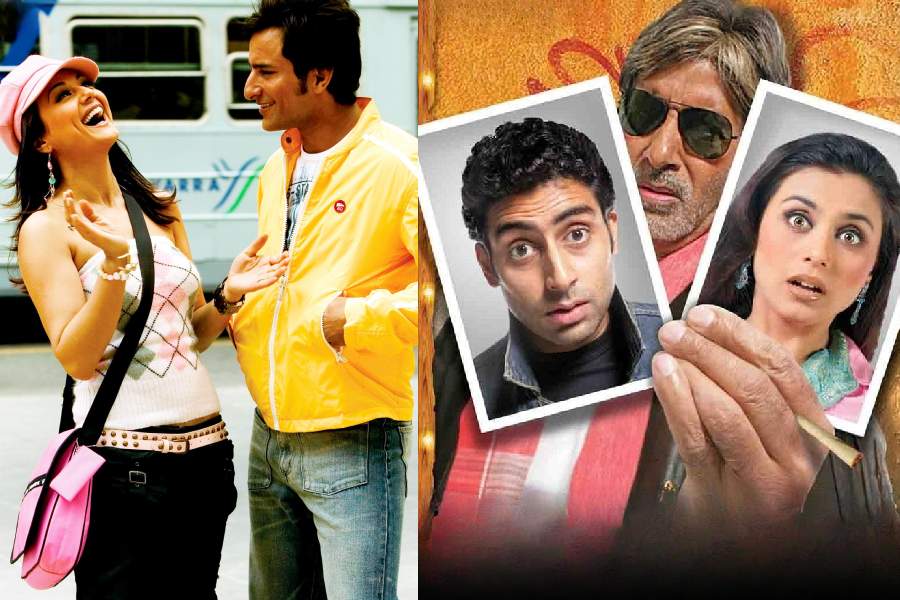 Sunday, 02 February 2025
Sunday, 02 February 2025
 Sunday, 02 February 2025
Sunday, 02 February 2025
Prime Minister Narendra Modi took the oath of office for his third consecutive term last week, as head of the National Democratic Alliance coalition government, his Bharatiya Janata Party having lost its majority in the Lok Sabha. Prime Minister Modi’s Union council of ministers has 71 members, with 30 cabinet ministers, five ministers of state with independent charge and 36 ministers of state. The prime minister’s new government has announced a number of big-ticket schemes it wants to push through. Here is a quick look at a few of them.
India’s new criminal laws spark ‘police state’ fears
India’s criminal justice system is set for an overhaul with the implementation of the Bharatiya Nyay Sanhita, the Bharatiya Nagarik Suraksha Sanhita, and the Bharatiya Sakshya Adhiniyam from July 1. Passed by Parliament during the monsoon session in August last year, these codes of law will replace the colonial-era Indian Penal Code, the Code of Criminal Procedure (CrPC), and the Indian Evidence Act of 1872, respectively. Civil liberty activists like senior Supreme Court lawyer Indira Jaising have raised concerns over the new laws, such as the fact that they would add to pending cases dependent on existing laws to an already overburdened judiciary and that they have provisions that could criminalise dissent. Others have said that only 20 to 25 per cent of the provisions are new and that they give too much power to the police.
Uniform civil code: Consensus possible?
Shortly after taking charge last week as minister of state with independent charge of the law and justice ministry, Arjun Ram Meghwal told reporters that a uniform civil code was part of the government’s agenda. Such a code has remained a part of the BJP's successive manifestos, but in this term, the push has gained momentum with Uttarakhand, which PM Modi’s party swept in the Lok Sabha election, already implementing a uniform code that has run into controversy by making the registration of live-in relations compulsory. The BJP might also face hurdles from its NDA allies. Leaders of Bihar chief minister Nitish Kumar’s JDU have said the party is not against a uniform civil code but wants it achieved through consensus. Similarly, leaders of Andhra Pradesh CM N. Chandrababu Naidu’s TDP have said they want such issues ‘discussed at length and resolved amicably’.
One nation, one election: Bye-bye, federalism?
Law and justice minister Arjun Ram Mehwal has also stated that ‘one nation one poll,’ a plan to implement Lok Sabha and state assembly elections at the same time, is on the government’s agenda. In March, a panel headed by former President Ram Nath Kovind presented a report supporting simultaneous elections to President Droupadi Murmu. Critics of the push – 15 political parties including the Congress, AAP and Trinamul who have opposed the idea – apprehend a thrust towards a presidential form of government; for them, saving on expenditure is no reason to destroy democratic and federal flexibility. Bengal chief minister Mamata Banerjee has referred to the plan as "a design to subvert the basic structure of the Constitution" and create a system to allow "autocracy (in) a democratic garb to enter the national public arena". A 2015 survey showed that 77 per cent of voters would vote for the same party in simultaneous elections, while 61 per cent would do so if the polls were six months apart.
Delimitation: South states could lose seats
The debate on delimitation, which redraws assembly and parliamentary constituencies based on population, was reignited after the women's reservation bill's passage in September 2023, with the implementation of delimitation slated for 2026 following the delayed 2021 census. Union home minister Amit Shah has also said in the run-up to the Lok Sabha elections that delimitation would be carried out on schedule. The 84th Constitutional Amendment of 2001 had frozen delimitation until 2026. Southern states like Tamil Nadu, Karnataka, Andhra Pradesh, Telangana, and Kerala fear reduced political representation after delimitation. Tamil Nadu chief minister MK Stalin highlighted that while Tamil Nadu and Bihar had similar populations in 1971, Bihar's population is now 1.5 times larger, which could lead to decreased parliamentary seats for Tamil Nadu, reducing its influence in Parliament. A few Opposition parties have called for early delimitation of constituencies to create "women's reserved seats" but argued it might unfairly benefit states with high population growth, while penalising those with successful population control.
CAA rollout, and questions of NRC
The Bharatiya Janata Party’s 2024 ‘Sankalp Patra’ manifesto omitted any mention of the National Register of Citizens, while the 2019 election manifesto had promised NRC implementation in Assam and potential extension to other states. The NRC, intended to identify illegal immigrants, has only been completed in Assam, where it sparked widespread protests and legal challenges due to concerns over exclusions and potential statelessness. The Citizenship Amendment Act, which gives citizenship for undocumented non-Muslim migrants from Pakistan, Bangladesh, and Afghanistan who arrived in India before December 2014, found mention in the BJP manifesto, with the government announcing its implementation in March 2024. Critics of the Modi government see the CAA-NRC combination as discriminatory against the Muslim community. The issue sparked widespread country-wide protest in 2019, after the CAA was passed.
Lakhpati Didi: Mind the gap between promise & implementation
Union Rural Development Minister Shivraj Singh Chouhan stated that he plans to generate impetus for the Lakhpati Didi initiative, which aims to enable rural women to earn a sustainable annual income of 1 lakh per year. “It is the prime minister’s dream to have three crore Lakhpati Didis in rural areas,” Chouhan said, urging stakeholders to achieve the goal within three years. Launched in 2023, the scheme is designed to provide skill training to financially empower women in self-help groups. If it works, it would benefit the country. However, PM Modi had also spoken in 2018 about the aim of doubling farmers’ income by 2022. Last week, a farmer from Uttar Pradesh, the state the prime minister is an MP from, reportedly committed suicide because of loans he could not repay.
Defence modernisation and export
Upon assuming office for his second term, defence minister Rajnath Singh has emphasised that modernising the armed forces and boosting domestic defence manufacturing are among his goals. “Defence exports touched a record Rs 21,083 crore in Financial Year 2023-24. It was historic. Our target will be to export over Rs 50,000 crore worth of defence equipment by 2028-2029,” he said. Singh also added that the government will focus on the welfare of veterans and soldiers. The Agniveer scheme of temporary recruitment to the army, meanwhile, is under a cloud with allies like the JDU wanting it tweaked and the Opposition gunning for the Agnipath programme.
Ease of flying: Can airfares be controlled?
New civil aviation minister Kinjarapu Rammohan Naidu has announced that he intends to bring down flight ticket prices “because that is a challenge for the common man.” He added: “Our intention is to take air travel to the common man, unless you make it affordable, it is not going to happen… We want to make airfare affordable, want to make airways the new railways of India. The common man is a little bit worried about high ticket prices. We still want to bring more people into air travel." The number of India’s domestic air passengers has registered an annual growth of 3.99 per cent and monthly growth of 4.4 per cent, according to the Directorate General of Civil Aviation. Affordable air travel is clearly a need. Hopefully, it will not come at the cost of Indian Railways, which is how most of Bharat travels.







